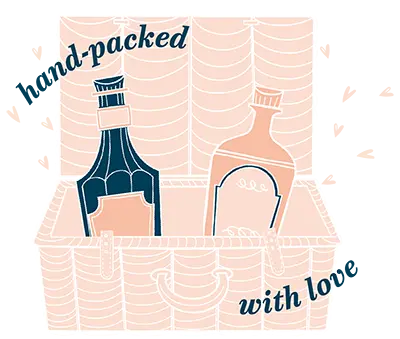Choosing the right Christmas gift used to be easy, agree a budget, decide on the gift item, research into companies selling that Christmas gift, review and shortlist for the best price, service and delivery process, then purchase, simple! Well yes this is still technically the process, however now you also must consider the tax implications of giving staff i.e employees, clients and suppliers Christmas gifts and what this means to you as an employer and to your recipient. So, in partnership with Hazlewoods LLP based in Cheltenham, Gloucestershire, Hamper.com have summarised the main points that we get asked by our clients when it comes to tax implications around Corporate Christmas gifts, time and time again. So let’s begin... IF YOU, AS AN EMPLOYER, GIVE YOUR EMPLOYEES A GIFT IT IS IMPORTANT THAT YOU BOTH UNDERSTAND THE TAX IMPLICATIONS. OTHERWISE WHAT WAS MEANT TO BE A NICE GESTURE COULD TURN INTO UNWANTED ADDITIONAL TAX FOR THE EMPLOYEE.
Can we give our employees gifts without them being subject to tax?
A trivial benefits exemption was introduced in April 2016 which enables certain benefits to be provided free of tax and NIC and without the need to report to HMRC on a P11D. The conditions to be satisfied to be treated as a trivial benefit are:
- the benefit cannot be cash or a cash voucher (non-cash vouchers such as high street vouchers are fine)
- the cost of the benefit cannot exceed £50
- the benefit must not be provided in respect of a salary sacrifice arrangement or a contractual obligation
- the benefit must not be provided in recognition of the employee’s services in the course of their employment
If the benefit exceeds £50 (or an average of £50 per person if impractical to calculate exact cost per person), the whole amount becomes taxable as a benefit in kind and not just the excess over that amount. The £50 refers to the total cost of providing the benefit i.e. inclusive of VAT and any related costs such as delivery. Records should be kept where trivial benefits have been provided to demonstrate that this exempt amount has not be exceeded. There is no cap on the number of trivial benefits that can be provided to an employee in a year, however, directors of close companies will be subject to an annual exempt amount of £300. This applies equally to benefits provided to the employee or to a member of the employee’s family or household. If you wish to provide anything which does not meet the criteria for a trivial benefit then unless you have a PAYE Settlement Agreement (PSA) with HMRC then the employee should pay tax on the benefit and you as the employer will have to pay Class 1A or 1B NIC.
What can be included as a trivial benefit?
- A food hamper to celebrate an employee’s marriage
- Flowers on the birth of a child or a bereavement
- Lunch for the team to celebrate one of the employee’s birthday
- A seasonal gift such as a turkey at Christmas or chocolates at Easter
What items are excluded from the exemption?
HMRC guidance provides some examples of exclusions from the exemption including:
- rovision of a working lunch
- Gifts for meeting specific performance targets
- Long service awards
- Gifts as a thank you for good results in the year
This is because other exemptions are available for such items.
Are there any gifts that are always taxable?
If you give your employees a cash bonus it will always be taxable and subject to PAYE and NIC. This is also the case for cash vouchers of any value, or non-cash vouchers (i.e. high street vouchers) where they exceed the £50 ‘trivial benefit’ amount.
Could the PSA help us?
A PSA is a more flexible way of dealing with some expenses payments and benefits in kind. It is an agreement between you, as an employer, and HMRC under which you agree to pay the tax on certain expenses and benefits that you give employees on a grossed up basis. Instead of paying Class 1 or Class 1A NICs, you pay Class 1B NICs on the items included in the PSA and on the total amount of tax payable. A PSA is particularly useful for small gifts over £50, gifts made on an irregular basis, or items where it is impractical to apply PAYE to, or to identify precisely what, should be included on form P11D. This information was correct at the time of publication (September 2018). For more information on tax implications for gifts, please contact Hazlewoods.co.uk or your tax agent. So now that’s clear you can continue to buy your Corporate Christmas gifts for staff, clients and suppliers safe in the knowledge that you have ticked all the boxes in regard to tax and what better way than to thank employees, important clients and key suppliers than with a delicious Christmas hamper full of festive food and drink from the large Christmas hampers range available at hamper.com with the very best luxury hampers, gift baskets and food gifts delivered free direct to the office or to recipients home address in the UK, with Worldwide delivery also available.








